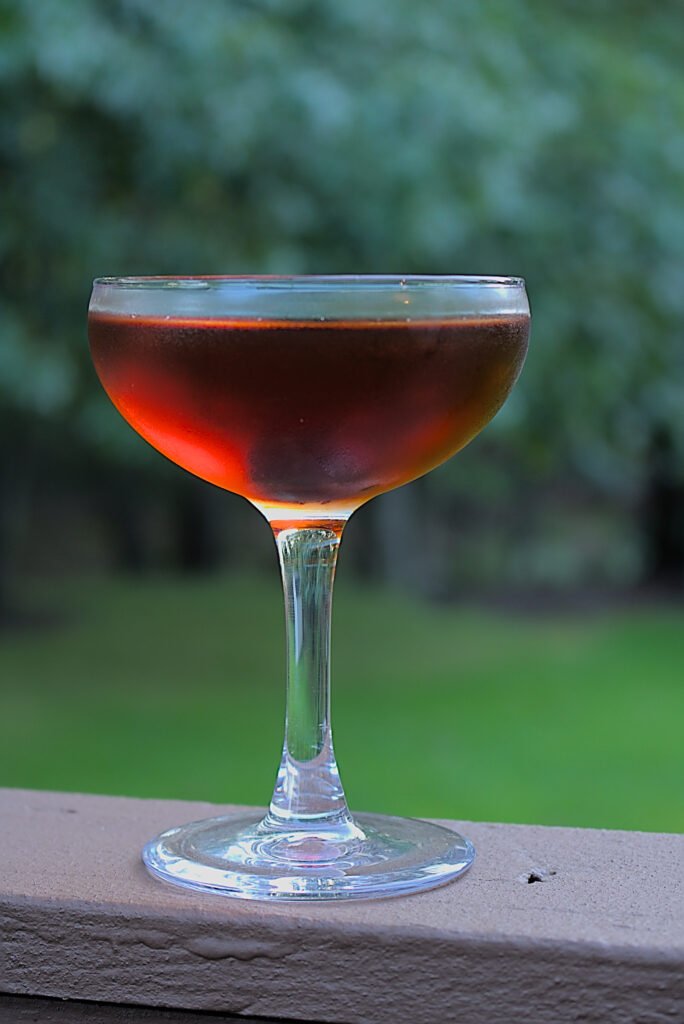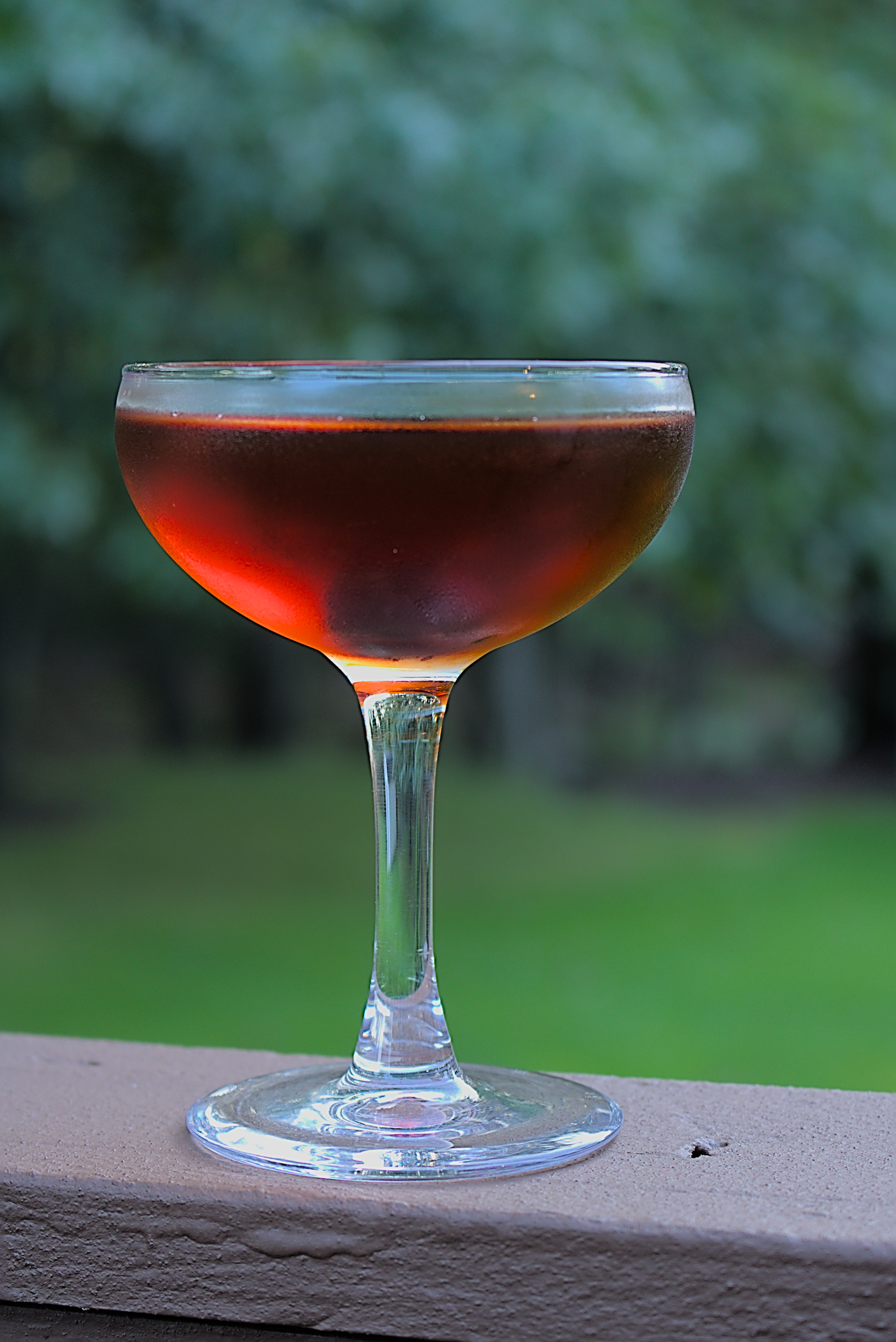
While the Rob Roy is merely a swapped based Manhattan (for Scotch), nothing could be more the premier drink of Scotch from the prohibition era. Legend has it this drink was created by G. Selmer Fougner for a representative of Usher’s scotch. When the representative asked Fougner to make a drink with the Scotch, Fougner created this as few (if any) Scotch cocktails were common at the time. The rep loved it, and legend has it that the drink was named after a popular play at the time, Rob Roy. Simple, harmonious, and easily made if you have the ingredients for a Manhattan, the Rob Roy has endured.
Rob Roy

The Rob Roy shows off the weight of the scotch and the flavors it can impart. Unlike a Manhattan, where Bourbon or Rye adds spices, caramel, and brown sugar, the scotch shows off floral, honeyed notes, malts, and subtle earthy notes. The play off the vermouth allows the fruit to show off. The bitters add the missing spice, and it rounds out nicely. If you like scotch, you’re going to like this. If you’re into American single malts, this may help you get into scotch. Overall, it’s balanced and delicious.
Drink Notes & Recommendations
The Rob Roy is the original Scotch cocktail. There’s no ifs, ands, or buts about that. It doesn’t mean that it hasn’t had some variation over the years. Among the variation you’re most likely to see if the kind of bitters and garnish. The bitters are traditionally Angostura, but you can use orange bitters here for a more modern take. You can also split the bitters. Garnish is a cherry or orange, which you can adjust depending on the scotch you start with.
- Scotch – The scotch you choose is going to drive the whole experience, so pick something you like. If you’re a fan of smoke or peat, you might enjoy a Lagavulin or Laphroaig. Something more light like Glenlivet 12 or the Great King Street Artist’s Blend will be better for those looking to emphasize more of the delicate fruit and floral notes.
- Sweet Vermouth – The vermouth has to work in tandem here, perhaps more so than bourbon. Lighter vermouths like Cocchi di Torino or Lustau may work better with lighter scotches, while Carpano Antica may be more of a bully that’s better suited for big, bruising, smokey scotches. Experiment to see what works best with your chosen Scotch.
- Bitters –
- Angostura* – These are the classic bitters, and will help impart spice.
- Orange – The orange bitters are more of a modern take, and you don’t need to use them. If you do Regan’s* adds a lot here with some delicious additional notes of cardamom and spice. You could also use Fee Bros Orange* if you can’t find Regan’s.
* – This link is an affiliate link which may result in us getting a partial commission from the sale. In 2022 we made $13.34 from affiliate links and made $6.93 so far in 2023, while we’ve spent well over $200 on just webhosting. Help us keep the lights on if you like our content, and please use our links!